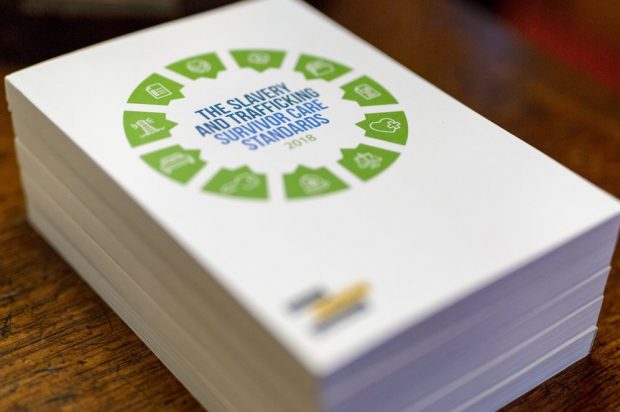
Our unique position to support those at risk
Human trafficking and modern-day slavery remain a very real experience for far too many people in the UK and across the world today. Today is Anti-Slavery Day and we wanted to use our social work blog to highlight the very painful realities of its effects on people and our roles as social workers as being able to support individuals and be part of the solution.
As social workers we work with the very people who may be exposed too, and at risk from, those who seek to exploit, control and abuse for gain.
We are also likely to be contacted by fellow professionals and the public raising concern about the circumstances of individuals, their presentations at hospitals, housing departments and voluntary organisations or even their perceived behaviours as they try to find support or deal with the experiences they have had.
It is important that, as social workers, we are aware of the devastating consequences of trafficking and exploitation, and we gain the skills and knowledge to respond positively, as well as educate colleagues and fellow public servants.
Many of you will no doubt have worked alongside people who have had these experiences or are still being exploited.
Many will have been trafficked from other countries or have additional care needs or both. It is the thinking and application of our core social work values that can make all the difference for people in such circumstances.

Practical not just pastoral support
Understanding that safe housing, access to money and food are as important to working with the person around their experiences or even attempting to protect them is a holistic view that social work can bring. Knowing about the national referral mechanism and how it works should be part of all social workers knowledge.
Social workers understand that the person others may label as anti-social, mentally unwell, drug and alcohol dependent has experienced trauma, forced into a way of life through control and abuse.
Social workers should seek to build relationships, give their time and patience to the human being behind the labels and judgements and work in a way that focuses on their hopes and wishes for the future. Through that relationship we can help build trust and support people towards a more positive future.
Find out more
- The National Crime Agency has published some essential signs social workers can share with other professionals to help them consider whether an individual may have been trafficked and/or exploited.
- You'll also find some useful information on the national referral mechanism on GOV.UK.
- If you want more direct advice or information there is a National Helpline that can be contacted on 08000 121700. If you believe someone is in immediate danger always call 999.
Leave a comment